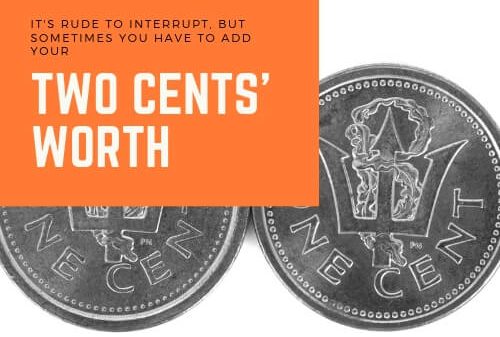
YouTube / iTunes / Spotify / Radio Public / Pocket Casts / Google Podcasts / Breaker / Overcast
Listen to ArtisanEnglish.jp posts & lesson intros here.
Phrase: Two cents’ worth
From time to time, in conversations, I, in my role as a teacher, intentionally say things that entice students to contribute their two cents’ worth (or more) to the discussion.
It’s called playing devil’s advocate.
A good conversation teacher knows how to create a desire in their students to say something.
Japanese students are very good at question-and-answer interaction.
If nobody asks them a direct question, they tend to stay on the sidelines of the conversation.
They don’t have the conversation skills, such as timing, to add their two cents’ worth.
Before we get any further into this, we should clarify that adding one’s two cents’ worth means giving an opinion on something even when no one has asked you for it.
It’s a skill that is as important as having an extensive vocabulary repertoire.
I’m not sure if my students realize this or not.
However, from time to time, I say something that will compel them to want to contradict me.
Other times, I’ll say something that I know they completely disagree with.
If what I say may seem outlandish, I’ll hedge it by saying, ‘I’m going to play devil’s advocate now,’ but usually, I say it without any warning.
When the conversation is natural, when students want to add their two cents’ worth and when they feel they need to say something, that’s when they genuinely use English for communication.
That’s the point where they forget about the language itself.
Grammar, vocabulary, preposition usage and the fear of making mistakes all fall by the wayside.
Students forget they are ‘learning’ English and begin ‘using’ English.
Real learning begins when you have something to say, and you want to say it.
Oh boy.
Now the secret is out.
Flesch-Kincaid Readability Test
This post is understandable by someone with at least an 8th-grade education (age 13 – 14).
On the Flesch-Kincaid reading-ease test, this post scores 67.
The easier a passage is to read, the higher the score on a scale of 0 – 100.

